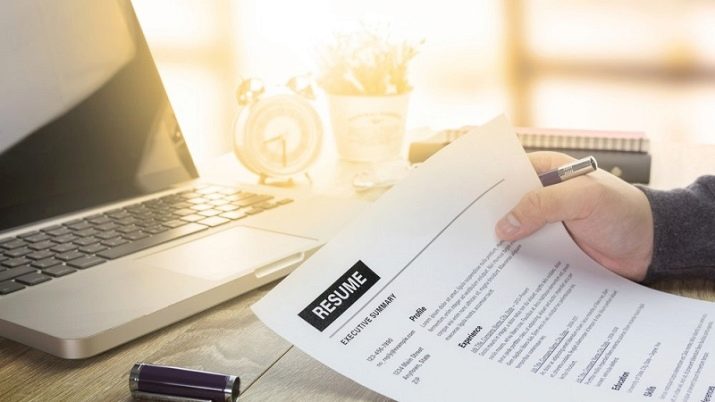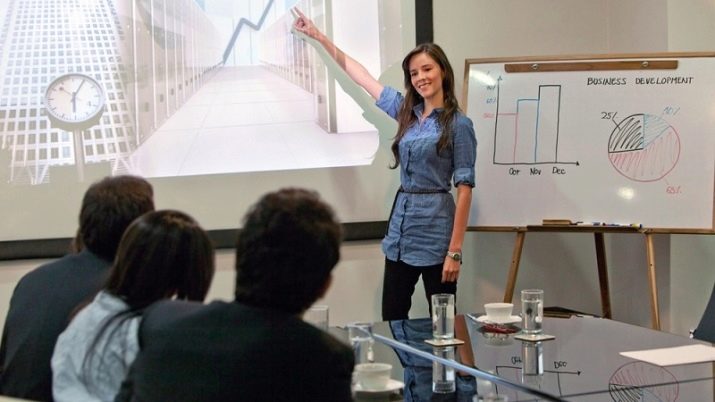The most important stage of employment is a personal interview of the applicant with the employer. It depends on this conversation whether you will be accepted for the position. A professional interview is a rather stressful process, which should be carefully prepared. Today in our article we will talk about how to properly present ourselves during a working interview.
Information processing
In general, information that is important to your employer can be arranged in several ways. Consider the main ones.
Summary
Resume is an official document that contains detailed information about the applicant for the position. At the same time, not only your professional achievements, key skills, but also the level of education, work experience, description of personal characteristics and some other information should be entered in the resume. Information in the CV must be written in the official business style as briefly as possible.
Typically, a resume is the primary document that is required for employment. It is he who creates the first impression of the applicant as a professional.

Orally
You can tell about yourself at the interview verbally. Wherein the story should be well structured. The speech should be prepared in advance, well-trained and rehearsed (this can be done in front of the mirror). You should have a biographical story about yourself and your professional activities. Besides, You should be ready to explain or talk in more detail about the information that was in the resume. Also be prepared to answer questions from your employer.
Presentation
In some cases, personal and professional information regarding the position you are applying for may be in the form of a presentation. Such visual accompaniment will help you to reveal your personality as much as possible.
It is necessary to make sure that this is appropriate in a particular company (it is not always possible to show your creativity and creativity in a corporate environment).
Creative options
Self-image can be issued in an original and creative way. This option is well suited if if you are applying for a creative profession. So, for example, you can create a beautiful portfolio for the position of designer. If there is a creative competition for the position (this is relevant for artists, dancers, artists, singers, etc.), a demonstration creative number should be prepared in advance. It should be original and copyright - only in this case you can stand out among the other applicants.
As you can see, there are a large number of options for processing information about the applicant for employment. When choosing one or another option, you should focus on the company and position, as well as on your own skills and abilities.

How to tell?
In preparation for the interview, attention should be paid not only to the content of your self-presentation, but also to take care of its form. So, there are some rules for building a story.
- Structuredness. All information should be clearly structured and organized. Your story should be clear and understandable. A chaotic retelling of the biographical details of your life will make a negative impression on the employer.
- Speed and rhythm. Your speech should not be excessively fast or, conversely, slow. Choose the most comfortable speech speed for yourself and stick to it throughout the story.
- The volume of speech. Uncertain people speak very quietly. This causes difficulties with respect to the perception of information by listeners. Too high a volume also negatively affects the employer's perception of the applicant for the position.
- Articulation. Make sure that you correctly and clearly pronounce the words, do not swallow the endings. Regardless of the nature of the position you are applying for, highly developed communication skills will be your advantage.
- Do not interrupt. If during your story the employer interrupts you and asks additional questions, you should by no means interrupt him. Listen to the employer's comments and comments to the end.
In order for the meaning of the story to be correctly and fully accepted by the employer, it is very important to take care not only of the meaning of your speech, but also of how you will present it.

How to present yourself?
Self-presentation is an important part of the interview. During the working interview, you need to correctly present information about yourself as a professional to the employer. In this case, the story should be concise and concise, regardless of what position you are applying for (for the position of educator, administrator in a sanatorium, for a leadership position, etc.).
Where to begin?
Self-presentation is worth starting with a greeting. Upon entering the office, you need to shake hands with all the interviewers present, and also say “hello” or “good afternoon”. Be sure to introduce yourself and say the names of each of those present (if you know them). After the offer to sit down, carefully move the chair offered to you and sit down.
Personal data
After the greeting, you must begin to submit your personal data. This applies to the name, surname and patronymic, age, place of residence, etc. try to provide this data not as a curriculum vitae, but as a free story.

Education
At this stage, you should tell everyone present about your education. It is recommended to build a story in chronological order. In this case, it is necessary to clarify the specialization and years of study. In some cases it is permissible to retell the history of university times, describe the learning process, and talk about your grades.
In addition, a positive impression on the employer will be made by the mention of your optional classes (for example, participation in the amateur art activities of the university).
experience
When describing your work experience, you should not talk about each position and about each company where you worked. It is best to dwell on several of the largest companies. At the same time, it is recommended to describe the functions that you performed, as well as those achievements that you are the author of (for example, you introduced a new technology or technique in the production process).

additional information
As additional information during the interview, you can talk about feedback about your professional activities from former employers. Wherein you should not be unfounded - it is recommended to provide written characteristics.
You can also talk about any other information that is directly related to the case. For example, in some cases, it’s appropriate to tell you that you are ready to move, that you have a driver’s license and a personal vehicle, etc.
Goals
At the employer's reception, it is very important to clearly state your goals. Tell us why you are looking for a job, what you are interested in in this area, and why you chose this company. The employer will attract purposeful and developing specialist.
Personal qualities
When searching for an employee for a particular position, the employer pays attention not only to the professional skills of the applicant, but also to the personality characteristics of the applicant. The thing is that, getting a job, you must fit in well with the already existing team. Moreover, one should not only list his personal qualities, but also confirm their usefulness in the course of work. For example, tell us about a stressful situation from which you were able to successfully exit.

Hobbies
The presence of hobbies demonstrates the fact that you are a fully developed personality and concentrate not only on work. You must have a hobby. At the same time, it can be either traditional reading, sports or fishing, or more extreme activities. In this respect Do not be afraid to demonstrate your personality in order to stand out from the rest of the candidates.
Total
To summarize your speech, interviewers should be given the opportunity to ask their questions. At the same time, your answer to the question should be short and concise, do not include unnecessary details and be as honest as possible. The question asked should be answered immediately or a little later, while the pause should not be too long.
At the end of the interview, many employers are asked to send them additional documents. A sample list may include recommendations from previous employers, education documents, etc.

What should not be said?
During the interview with the employer, some information should be avoided.
- Primarily In no case should one speak negatively about the previous employer and the previous place of work. Employers perceive this information negatively, because in the future you can also speak about this place of work.
- If you plan to work in this position for a very short period of time, then you should not talk about this at the interview with the employer. The thing is that employers are looking for responsible employees who strive to develop and improve in their chosen field of activity.
- It is no secret that work is a material source that ensures the existence of man. Therefore, when choosing a profession, many of us focus on those areas where we can earn more.However, the employer should not talk about this during the working interview.
- During a professional conversation it is completely inappropriate to start conversations on topics such as, for example, politics, religion, etc.
- Do not give the employer false information (for example, about your professional skills or achievements). Remember that in any case, your lie will be revealed during your work - in this case you will not only lose your position, but also destroy your business reputation.
- Familiar, colloquial, and colloquial phrases should be avoided. Adhere to a formal business style of speech that is generally accepted in business circles.
Thus, when preparing for an interview, it is very important to censor yourself and carefully select the information that the employer is allowed to tell.
In addition, during the interview, constantly keep yourself in control so as not to say anything unnecessary.

Examples
In order to compose a competent story about yourself, you should write a text in advance. It is recommended to check it yourself several times, as well as ask for advice from relatives or friends. We bring to your attention a sample story about yourself.
"Good afternoon! I have indicated key information about myself in advance in the CV. I will try to briefly and succinctly retell the most important points. My name is ..., I am ... years old. I have been working in this field for ... years. I decided to get higher education in this specialty, because ... Your company attracted me with such characteristics as ... I stopped my professional activity at the previous place of work, because ... In the course of work, I used such personal qualities as ... Ready (a) to answer all your questions. "
At the same time, do not forget that the story should be as individualized as possible. Do not retell template phrases and expressions, be sure to add information about yourself.
Job search is an important and responsible task, which should be approached with maximum responsibility. It should be borne in mind that employment is a multi-stage process, of which interviewing is an important part. A personal interview with the employer should be carefully and well prepared in advance. You should not only make your own self-presentation, but also examine all available information about the company. Thus, you can make a good impression on the employer and get the desired position.











